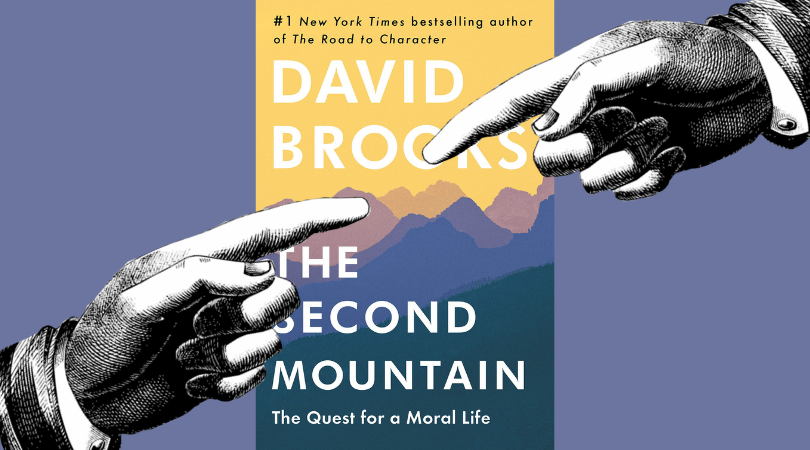
There are few things the literary community relishes more than the appearance of a polarizing high-profile book. Sure, any author about to release their baby into the wild will be hoping for unqualified praise from all corners, but what the lovers of literary criticism and book twitter aficionados amongst us are generally more interested in is seeing a title (intelligently) savaged and exalted in equal measure. It’s just more fun, dammit, and, ahem, furthermore, it tends to generate a more wide-ranging and interesting discussion around the title in question. With that in mind, welcome to a new series we’re calling Point/Counterpoint, in which we pit two wildly different reviews of the same book—one positive, one negative—against one another and let you decide which makes the stronger case.
Today we’re taking a look at David Brooks’ The Second Mountain. From the divisive New York Times op-ed columnist and author of The Road to Character comes an exploration of how to live a meaningful life. Brooks divides the world into two: the First Mountain is filled with people who are obsessed with power, success, and Instagram happiness, while the Second Mountain is a refuge for those who have climbed the First Mountain, shed their self-absorption, and decided to focus on developing deeper relationships. In Washington Independent Review of Books, Talmage Boston says, “By weaving together dozens of pearls from this spectrum of world-class thinkers…Brooks demonstrates powers of synthesis that surely rise to the level of genius.” But this philosophy might not strike a chord with everyone. In The New Yorker, Benjamin Wallace-Wells says, “Brooks, searching for a source of authority, mostly conjures a fog, thick enough that the durably geological image of the title sometimes disappears entirely.”
Do you think it sounds worth the climb?
*
Every once in a while, I meet a person who radiates joy. These are people who seem to glow with inner light … When you meet these people, you realize that joy is not just a feeling, it can be an outlook.
“In his new book, Brooks elevates this assemblage/distillation process to new heights as he gleans the most important thoughts from some of history’s leading philosophers and theologians, and combines them with lessons learned from his own life, resulting in 300+ pages that will likely cause legions of readers to reassess how they want to spend the rest of their days … The most electrifying part of The Second Mountain comes in Chapter 21, the book’s longest, aptly titled, ‘A Most Unexpected Turn of Events.’ In those 40 pages, Brooks gives the specifics of his personal faith journey … By weaving together dozens of pearls from this spectrum of world-class thinkers and unifying their thoughts into an account of his faith pilgrimage, Brooks demonstrates powers of synthesis that surely rise to the level of genius. For those who have now finished this review of The Second Mountain and decide to forego Brooks’ new book, here’s hoping that the rest of your life on the First Mountain provides some measure of Instagram happiness.”
–Talmage Boston (Washington Independent Review of Books)
“The more Brooks works to describe the joy of second-mountain people, the more frankly sexual it sounds … Brooks has chosen a dauntingly broad topic … Brooks, searching for a source of authority, mostly conjures a fog, thick enough that the durably geological image of the title sometimes disappears entirely. All the abstraction makes you pine for the solidity of the $35.99 faux-authentic trowel … For a book about transformation, most of the people whom Brooks describes are static figures … Brooks begins to sermonize, not about his own soul but the country’s … The wry, observational tone that has been Brooks’s hallmark for decades is entirely gone … The bait is that the book is about us; the switch is that it is about him … the story he tells is so centrally about one experience of renewal that it offers little guidance to the rest of us. The characters in this book don’t climb the second mountain, not really.”
–Benjamin Wallace-Wells (The New Yorker)

